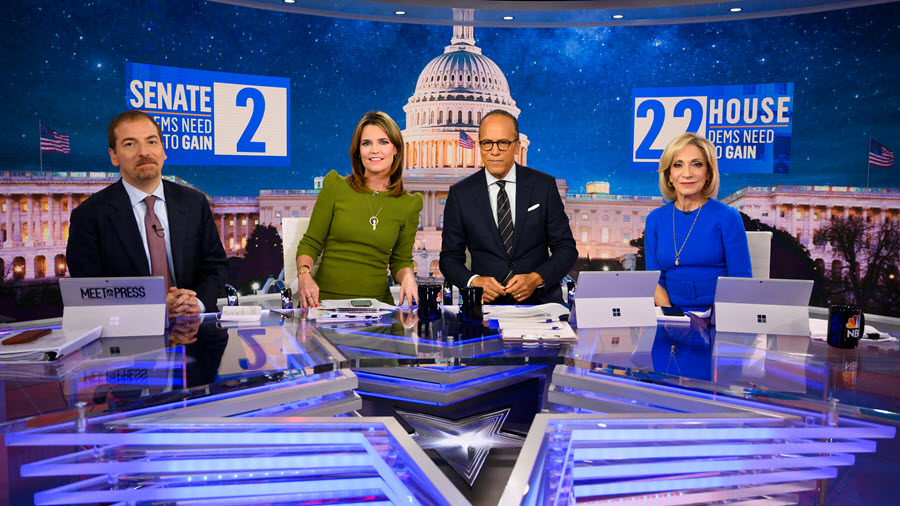Broadcast News Operations Update Election Coverage Requests
Update FCC on need for STAs, waiver

The smarter way to stay on top of broadcasting and cable industry. Sign up below
You are now subscribed
Your newsletter sign-up was successful
The Broadcast network news operations have asked the FCC to approve their plans for coverage of the Democratic and Republican presidential nominating conventions and inauguration, including rule waivers and special temporary authorities (STAs) for spectrum use, particularly given the changes in spectrum availability since 2016.
That came in a letter from the ad hoc RF Spectrum and Frequency Coordination Committee of the Network News Pool Organization (which is going by Election Wireless 2021, or EW2021), a group comprising ABC News the DNC network pool producer, CBS News (the RNC pool producer), CNN, Fox News, and NBC News.
It is actually an update of a previous request, that the FCC granted, but reflects potential changes to venues.
"Since the previous request was submitted, there have been significant changes to the planned location and timing of the conventions. In addition, Commission staff has asked that the request address approvals required for coverage of both the 2020 conventions and the 2021 Presidential Inauguration," the broadcasters said. "This updated letter reflects these changes and is intended to supersede the previous letter. Given the continuing impact of COVID-19, we anticipate that there could be further changes to the convention and inauguration plans and, if so, we will promptly notify the Commission and seek further modifications to this request."
One of the changes is adding Jacksonville as the potential new site for the RNC, which is moving from Charlotte, N.C., though some meetings are still expected to be held there as well.
Specifically, the committee is asking that 1) Louis Libin (VP for spectrum engineering and policy at Sinclair) be designated as the frequency coordinator for the coverage; that 2) the FCC authorize future applications for or amendments to, STA's for spectrum use at the events, and that 3) the FCC waive some power and distance separation rules temporarily to "facilitate full coverage."
Convention coverage has always been a unique coverage challenge, they point out, given the number of people and organizations requiring spectrum management. And unlike sports events where one broadcaster has the rights, there are not rightsholders to convention coverage, meaning "many participating networks, local radio and television stations, and other news-gathering entities will be considered equals at the Events," all wanting limited spectrum for a host of wireless devices. Management is necessary to prevent interference, and for extended periods of times at multiple locations.
On top of that, they point out, this will be the first time they will have to do this after the transition from broadcast use of the 600 MHz spectrum that was turned over to wireless carriers in the broadcast incentive auction.
Then there are the new media organizations covering the conventions and inauguration that did not even exist in 2016. They also say the coverage could be a showcase/testbed for next-gen wireless equipment, all of which they said makes the need for spectrum management greater than ever.
"EW2021 will cross-coordinate and participate with local, state, and federal government agencies to help assure protection of vital communications infrastructure necessary for the safety and security of participants and attendees of the Events," they said.
The committee also has representatives from the the Department of Homeland Security and the Secret Service, as well as the FCC itself.
The smarter way to stay on top of broadcasting and cable industry. Sign up below
Contributing editor John Eggerton has been an editor and/or writer on media regulation, legislation and policy for over four decades, including covering the FCC, FTC, Congress, the major media trade associations, and the federal courts. In addition to Multichannel News and Broadcasting + Cable, his work has appeared in Radio World, TV Technology, TV Fax, This Week in Consumer Electronics, Variety and the Encyclopedia Britannica.

